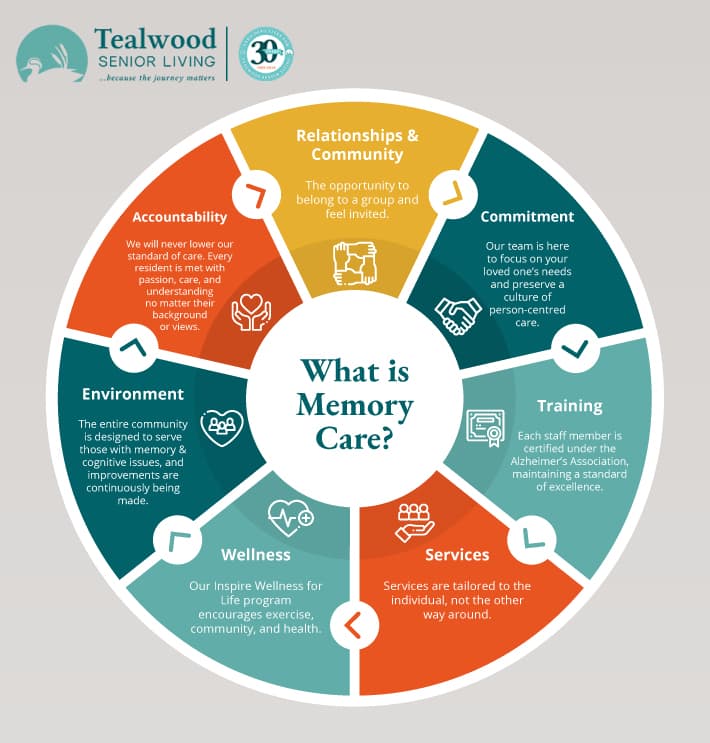High-Quality Care Program Supplied Through Alzheimers Care Charlotte Centers
High-Quality Care Program Supplied Through Alzheimers Care Charlotte Centers
Blog Article
Developing a Safe and Helpful Environment for Alzheimer's Treatment
The creation of a supportive and risk-free atmosphere for individuals with Alzheimer's is vital in boosting their top quality of life. Exploring these diverse methods can disclose important understandings right into reliable caregiving approaches that might change the day-to-day experiences of both patients and caretakers.
Understanding Alzheimer's Requirements
Frequently, individuals with Alzheimer's disease exhibit a variety of needs that require tailored approaches to care. As the condition proceeds, cognitive decrease shows up in numerous means, affecting memory, reasoning, and even the ability to perform daily activities. Caretakers need to acknowledge these progressing requirements to offer suitable support and ensure a greater high quality of life for those impacted.
One vital element of understanding Alzheimer's demands is identifying the value of regular and experience. People usually find comfort in well established patterns, which can lower stress and anxiety and confusion. Caretakers should make every effort to develop organized everyday schedules that incorporate meaningful activities aligned with the individual's capacities and rate of interests.
In addition, effective interaction is critical. Individuals with Alzheimer's may struggle to share themselves or comprehend complex language. Caretakers ought to employ simple, clear language, usage non-verbal cues, and method energetic listening to foster understanding and link.
Caregivers need to encourage interaction in neighborhood tasks or family members gatherings, promoting a feeling of belonging and objective. Understanding these diverse needs is vital for producing an encouraging care environment.
Designing a Safe Home
Producing a secure home for individuals with Alzheimer's disease is important to promoting and reducing risks freedom. Guarantee that paths are clear and well-lit, as proper lighting minimizes disorientation and enhances flexibility.
Integrating flexible features is also vital. Mount grab bars in restrooms and near staircases, and consider making use of non-slip floor coverings in damp areas. Furthermore, utilizing contrasting shades for floors and wall surfaces can assist in differentiating rooms, helping to alleviate confusion.
Knowledge is necessary for people with Alzheimer's. Customizing the environment with familiar things and photos can strengthen a feeling of belonging and safety - Alzheimers Care Charlotte. It is also valuable to have an assigned location for day-to-day activities, such as reading or crafting, which can offer framework to their day
Last but not least, executing a safe and secure outdoor space permits for secure exploration while connecting with nature. By thoughtfully developing the home environment, caregivers can significantly enhance the lifestyle for people living with Alzheimer's illness.
Enhancing Interaction Abilities

Non-verbal interaction, consisting of facial expressions, gestures, and touch, plays a crucial duty in sharing empathy and understanding. Keeping eye contact and a tranquil temperament can boost the convenience degree of the individual, promoting a feeling of more security.
Additionally, it is very important to practice active listening. This involves being totally present, showing perseverance, and enabling the individual to reveal themselves without disturbance. Repetition may be required; caretakers should be prepared to take another look at topics or questions, as people with Alzheimer's might fight with memory recall.
In addition, using aesthetic aids or hints, such as pictures or familiar items, can facilitate acknowledgment and engagement. Inevitably, improving communication abilities is about developing trust fund and developing an atmosphere where people feel listened to, valued, and understood, therefore enriching their high quality of life.
Encouraging Social Communication
Cultivating meaningful social communications can substantially enhance the health of individuals with Alzheimer's condition. Engaging with others not just helps battle sensations of seclusion but likewise promotes cognitive feature and emotional health. Structured social activities, such as team arts, crafts and video games, or songs treatment, create possibilities for locals to attach with peers and caretakers, which can lead to boosted mood and minimized anxiety.
Creating a welcoming atmosphere that motivates socializing is important. This can be accomplished by setting up common spaces that assist in communication, such as relaxing seating locations or task rooms. Additionally, incorporating culturally relevant and acquainted tasks can trigger memories and encourage participation, allowing individuals continue reading this with Alzheimer's to really feel more linked to their previous experiences.
In addition, caretakers should be educated to acknowledge and promote social involvement amongst locals. By prioritizing social communication, we can considerably enrich the lives of those living with Alzheimer's, promoting a sense of neighborhood and belonging.
Supporting Caretaker Well-being

To support caregivers, organizations need to use normal training and instructional sources to improve their understanding of Alzheimer's disease and caregiving techniques. Supplying accessibility to look at here now reprieve care solutions enables caretakers to take necessary breaks, minimizing stress and anxiety and exhaustion - Alzheimers Care Charlotte. Additionally, cultivating a community with support system can assist in psychological sharing and the exchange of useful suggestions amongst caregivers, producing a network of mutual support
Mental health and wellness sources, such as counseling services, can likewise be important in dealing with the emotional toll caregiving can take. By focusing on caregiver wellness, we develop an even more sustainable caregiving environment that not just profits the caretakers themselves yet additionally boosts the total top quality of treatment received by individuals with Alzheimer's. Ultimately, sustaining caretakers is a crucial part in cultivating a efficient and caring care setup.
Verdict
To conclude, the production of a helpful and safe environment for people with Alzheimer's is necessary to enhancing their high quality of life. By prioritizing security via thoughtful style, fostering psychological wellness with acquainted elements, and advertising involvement via structured regimens, caretakers can substantially influence the general experience of those affected by this problem. Additionally, supporting caretaker wellness is essential, as it inevitably adds to a more effective and compassionate treatment atmosphere.
Repeating might be required; caretakers ought to be prepared to revisit questions or subjects, as people with Alzheimer's may battle with memory recall.

Report this page